Gladstone-UCSF Institute of Genomic Immunology
Innovators of Genomic Immunology
Researchers at the Gladstone-UCSF Institute of Genomic Immunology are using their diverse expertise in a rapidly advancing field to design and produce tailored immune cell therapies to combat a broad array of diseases.
Meet the scientists behind this work and discover how their labs are using genomic and genome engineering technologies to address key questions in human immunology and repurpose the immune system to fight disease.
You’ll also get to hear from invited speaker Carl June, MD, director of the Center for Cellular Immunotherapies, and director of the Parker Institute for Cancer Therapy at the University of Pennsylvania.
Agenda
| 9:00–9:15am | Opening Remarks Alex Marson, MD, PhD, Gladstone Institutes |
| 9:15–9:45am | Single Cell Genomics for Immunology Jimmie Ye, PhD, UC San Francisco |
| 9:45–10:15am | Decoding Decision-Making in the Immune System from Single-Cell Data Matthew Spitzer, PhD, UC San Francisco |
| 10:15–10:30am | Break |
| 10:30–11:00am | Reprogramming T Cells with CRISPR Alex Marson, MD, PhD, Gladstone Institutes |
| 11:00–11:30am | Cells, Gene Programs, and Spatially Organized Immune Hubs in MMRd and MMRp Colorectal Cancer Karin Pelka, PhD, Gladstone Institutes |
| 11:30am–12:00pm | Synthetic Biology Approaches to the Regulation of Immune Cell Therapeutics Kole Roybal, PhD, UC San Francisco |
| 12:00–1:00pm | Lunch Break |
| 1:00–2:00pm | Keynote Carl June, MD, Parker Institute for Cancer Therapy, University of Pennsylvania |
| 2:00–2:30pm | Treg Cell Therapy for Inducing Transplantation Tolerance Qizhi Tang, PhD, UC San Francisco |
| 2:30–3:00pm | Making New Drugs: Process Development and Manufacturing of Cellular Therapies under cGMP Jonathan Esensten, MD, PhD, UC San Francisco |
| 3:00–3:30pm | Break |
| 3:30–4:00pm | RASA2 Checkpoint Ablation in T Cells Boosts Antigen Sensitivity and Long-Term Function Julia Carnevale, MD, UC San Francisco |
| 4:00–4:30pm | Precision Engineering and Novel CAR Designs to Improve Cell Therapy Justin Eyquem, PhD, UC San Francisco |
| 4:30–5:00pm | High-Throughput Genomics in Cancer Immunology Ansu Satpathy, PhD, Stanford University |
| 5:00pm | Closing Remarks Alex Marson, MD, PhD |
About the Speakers
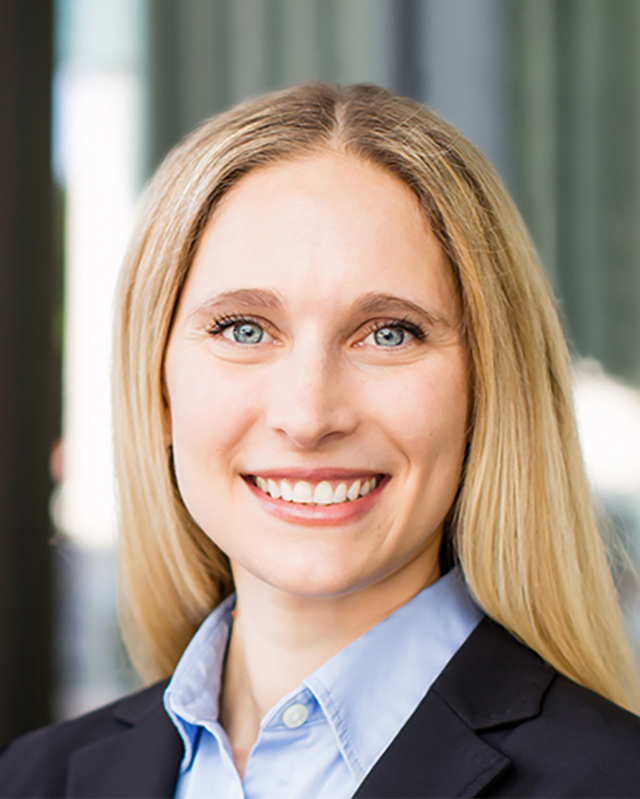
Julia Carnevale, MD
Affiliate Investigator, Gladstone Institutes
Assistant Professor, Department of Medicine, UC San Francisco
Julia Carnevale received her MD at Harvard Medical School, where she worked with Kim Stegmaier on the mechanism of SYK as a target in AML. She completed her residency and fellowship in hematology/oncology at UCSF, sub-specializing in GI oncology, and joined the laboratory of Alan Ashworth with the goal of using innovative CRISPR screening approaches to identify novel therapeutic targets for GI malignancies. She has been awarded a Damon Runyon Physician-Scientist training award, an AACR-ASCO Young Investigator Award, and a Burroughs Wellcome Foundation award. She joined the faculty at UCSF and the Gladstone-UCSF Institute of Genomic Immunology in the fall of 2021. Her lab will focus on using their knowledge of key target genes to reprogram the biology of T cell therapies against aggressive malignancies.
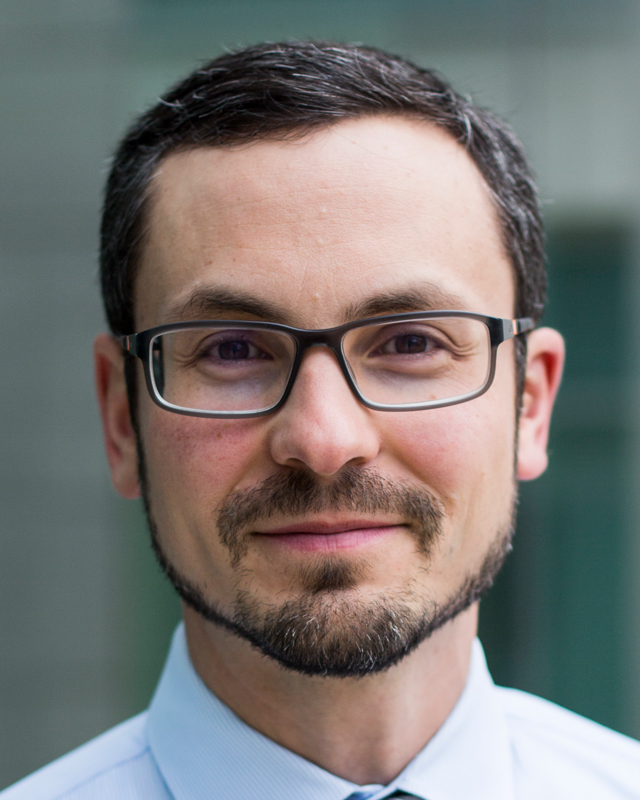
Jonathan Esensten, MD, PhD
Assistant Adjunct Professor, Department of Laboratory Medicine, UC San Francisco
Affiliate Investigator, Gladstone Institutes
Jonathan Esensten leads an experimental cellular therapy process development and manufacturing group at UCSF. They focus on improving techniques for manufacturing T cell–based therapies for patients with autoimmune disease, solid organ transplant, and cancer. He was a Leukemia and Lymphoma Society Fellow in the laboratory of Wendell Lim. He is co-director of the clinical Regulatory T Cell Manufacturing Group at UCSF, and medical director of the UCSF HICTF and GMP Facility. He completed residency in clinical pathology and fellowship in transfusion medicine and blood banking at UCSF.
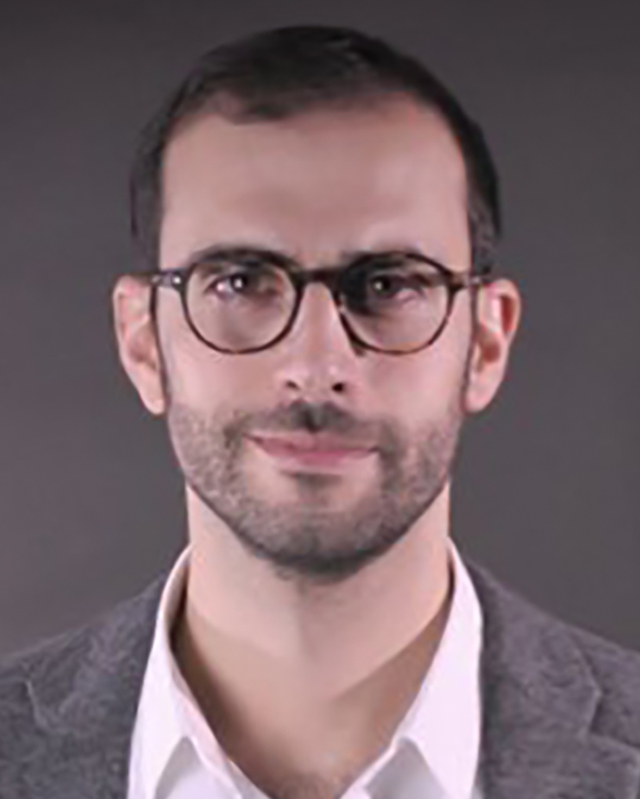
Justin Eyquem, PhD
Affiliate Investigator, Gladstone Institutes
Assistant Professor, Department of Medicine, UC San Francisco
Justin Eyquem received his PhD from the University of Paris-Diderot in collaboration with the biotech company Cellectis. In 2014, he joined Michel Sadelain’s lab at the MSKCC and used CRISPR/Cas9 to engineer CAR T cells, showing how targeting the CAR transgene into specific loci enhances T cell efficacy, advances CAR immunobiology, and facilitates T cell manufacturing. In 2019, he received the Parker Fellow Award and opened his lab in the department of Microbiology and Immunology at UCSF where he began developing a gene-editing platform to enhance CAR T and NK cell functions in hematological and solid tumors. He joined the faculty at UCSF and the Gladstone-UCSF Institute of Genomic Immunology in the summer of 2021.
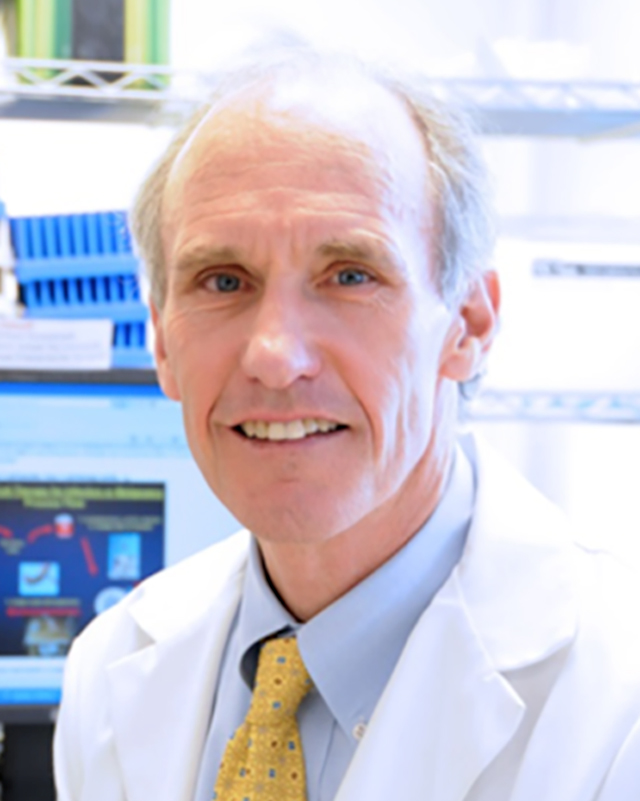
Carl June, MD
Director, Center for Cellular Immunotherapies, Perelman School of Medicine
Director, Parker Institute for Cancer Immunotherapy, University of Pennsylvania
Carl June is the Richard W. Vague Professor in Immunotherapy in the department of pathology and laboratory medicine. He is currently director of the Center for Cellular Immunotherapies at the Perelman School of Medicine, and director of the Parker Institute for Cancer Immunotherapy at the University of Pennsylvania... He maintains a research lab that studies various mechanisms of lymphocyte activation that relate to immune tolerance and adoptive immunotherapy for cancer and chronic infection. In 2011, his research team published findings detailing a new therapy in which patients with refractory and relapsed chronic lymphocytic leukemia were treated with genetically engineered versions of their own T cells. He is the recipient of numerous prizes and honors, including election to the Institute of Medicine in 2012 and the American Academy of Arts and Sciences in 2014, the Richard V Smalley Memorial Award from the Society for Immunotherapy of Cancer, the AACR-CRI Lloyd J. Old Award in Cancer Immunology,, the Taubman Prize for Excellence in Translational Medical Science in 2014 , the Novartis Prize in Immunology , and a lifetime achievement award from the Leukemia and Lymphoma Society.
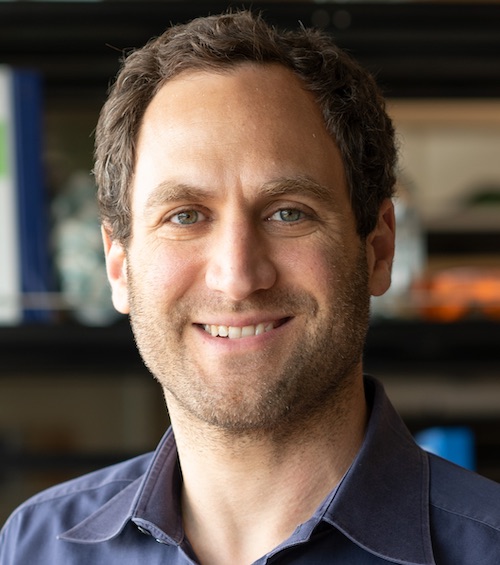
Alex Marson, MD, PhD
Director, Gladstone-UCSF Institute of Genomic Immunology
Professor, Department of Medicine, UC San Francisco
Alex Marson is a professor at UCSF and the director of the Gladstone-UCSF Institute of Genomic Immunology. He trained under the joint mentorship of Rick Young and Rudolf Jaenisch at the Whitehead Institute at MIT for his PhD. He completed medical school, internship, and residency at the Brigham and Women’s Hospital in Boston and started his lab as a Sandler Faculty Fellow at UCSF in 2013. In addition to his positions at UCSF and the Gladstone-UCSF Institute of Genomic Immunology, he is the scientific director of human health at the Innovative Genomics Institute, a member of the Parker Institute for Cancer Immunotherapy, and an investigator at the Chan Zuckerberg Biohub. His research is focused on adapting CRISPR genome-editing techniques to human immune cells in order to understand the genetic programs controlling immune cell function and to manipulate T cells to generate cell-based therapies for a wide range of diseases.
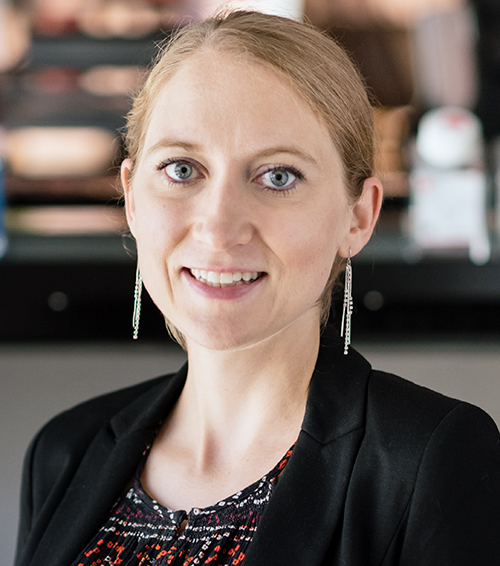
Karin Pelka, PhD
Assistant Investigator, Gladstone Institutes
Assistant Professor, Department of Microbiology and Immunology, UC San Francisco
Karin Pelka earned her PhD in innate immunity from the University of Bonn in Germany, where she discovered a key regulatory mechanism that controls the detection of infection- or danger-associated nucleic acids by sensors of the innate immune system. As a postdoctoral fellow at the Broad Institute, she led a cross-disciplinary, multi-institutional single-cell RNA-sequencing and spatial profiling effort on human colorectal cancer. She joined UCSF this fall and is now an assistant investigator at Gladstone Institutes and an assistant professor in the Department of Microbiology and Immunology at UCSF. She is a member of the American Association for Cancer Research, the German Society for Immunology (Deutsche Gesellschaft für Immunologie), and the Society for Immunotherapy of Cancer. Her work aims to understand how immunological processes are regulated in human tissues in order to leverage the immune system in the fight against diseases such as cancer.
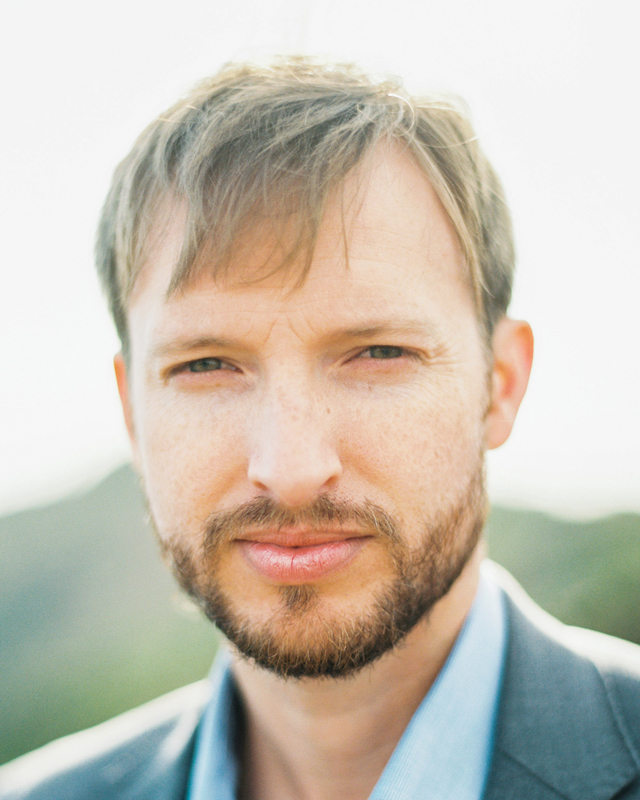
Kole Roybal, PhD
Associate Professor, UC San Francisco
Affiliate Investigator, Gladstone Institutes
Kole Roybal is an associate professor in the department of microbiology and immunology at UCSF. He received his doctorate in immunology from UT Southwestern Medical Center and was a Jane Coffin Childs Memorial Fund Postdoctoral Fellow in the laboratory of Wendell A. Lim at UCSF and the Howard Hughes Medical Institute. He is currently a member of the Parker Institute for Cancer Immunotherapy, the Helen Diller Family Comprehensive Cancer Center, and an inaugural Chan Zuckerberg Biohub Investigator. He is also the deputy director of the UCSF Center for Synthetic Immunology recently funded by the Cancer Moonshot Initiative. He was awarded the Sartorius and Science Magazine Prize for Regenerative Medicine and Cell Therapy and the NIH New Innovator Award in 2018.
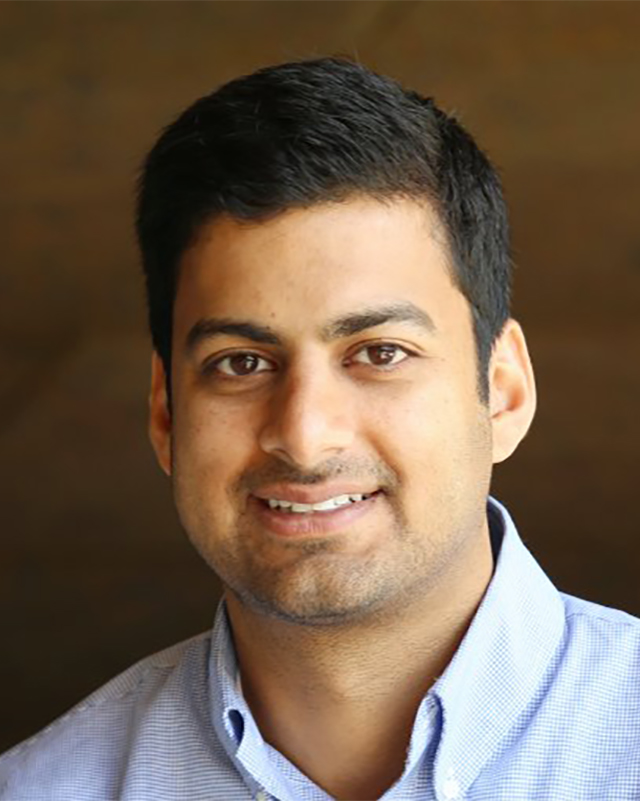
Ansu Satpathy, MD, PhD
Assistant Professor, Stanford University School of Medicine
Affiliate Investigator, Gladstone Institutes
Ansuman Satpathy is an assistant professor in the Department of Pathology at Stanford University School of Medicine. He is a member of the Stanford Cancer Institute, the Parker Institute for Cancer Immunotherapy, the Immunology, Cancer Biology, and Biomedical Informatics Programs, Bio-X, and a faculty fellow in ChEM-H. He completed an MD and PhD in immunology at Washington University in St. Louis, clinical residency in pathology at Stanford Hospital and Clinics, and postdoctoral training in genetics at Stanford University. His research group focuses on developing and applying genome-scale technologies to study fundamental properties of the immune system in health, infection, and cancer.
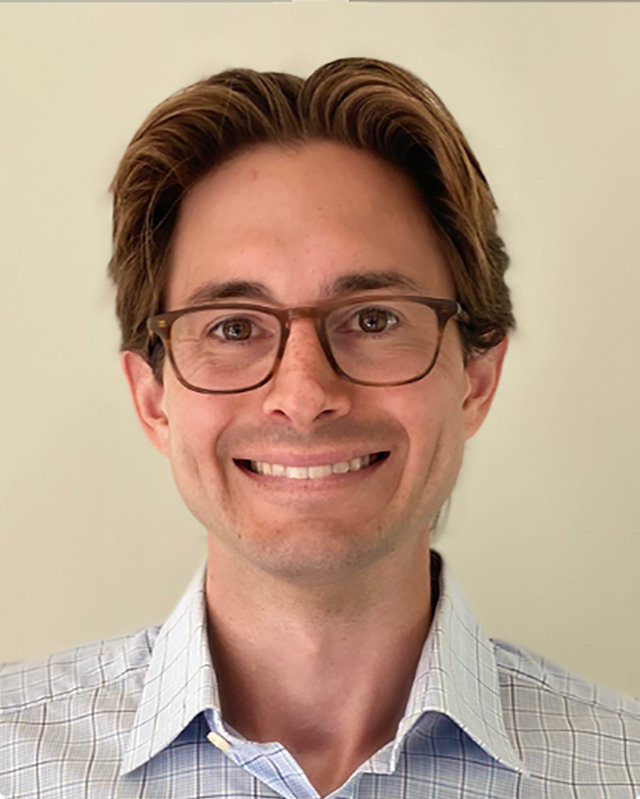
Matt Spitzer, PhD
Assistant Professor, UC San Francisco
Affiliate Investigator, Gladstone Institutes
Matt Spitzer completed his training in Immunology at Stanford University in the laboratories of Garry Nolan and Edgar Engleman, developing experimental and analytical methods to model the state of the immune system using high-dimensional single-cell data. He moved to UCSF in the summer of 2016 as a UCSF Parker Fellow and a Sandler Faculty Fellow, and is now an assistant professor in the Departments of Otolaryngology-Head and Neck Surgery and Microbiology & Immunology and an investigator of the Parker Institute for Cancer Immunotherapy.
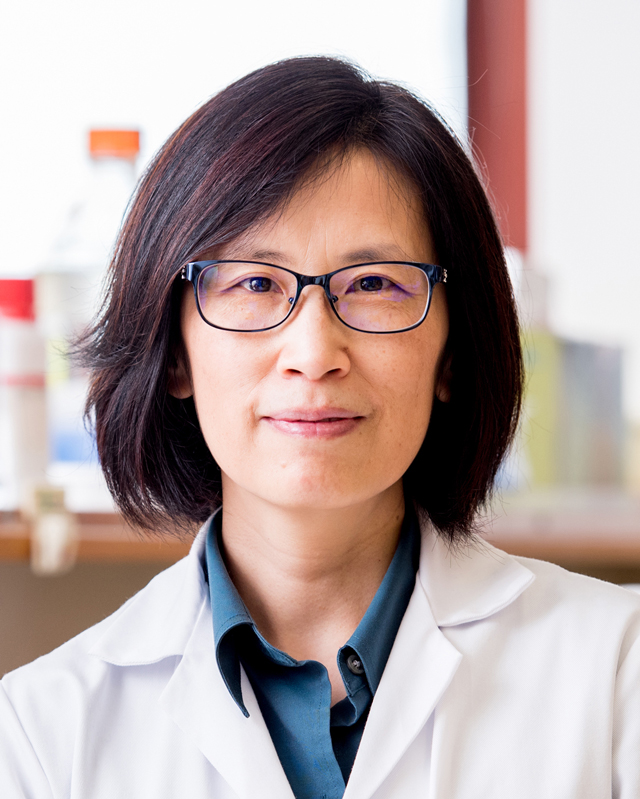
Qizhi Tang, PhD
Director, Transplantation Research Laboratory and Professor of Surgery, UC San Francisco
Affiliate Investigator, Gladstone Institutes
Qizhi Tang received her PhD in immunology from the University of Illinois at Chicago. She completed postdoctoral fellowships investigating mechanisms of immune tolerance at the University of Chicago and UCSF. She joined the faculty at UCSF in 2002 as an assistant professor of pathology in the Diabetes Center where she researched mechanisms of immune tolerance. She joined the transplantation division in the department of surgery in 2007 to lead basic research and translational research in transplant immunology. She has been the director of the UCSF Transplantation Research Laboratory since 2007. A major research focus in the Tang Lab is on regulatory T cell therapy for autoimmune diseases and transplantation, and since 2011, she has also been co-directing the regulatory T cell therapy program at UCSF.
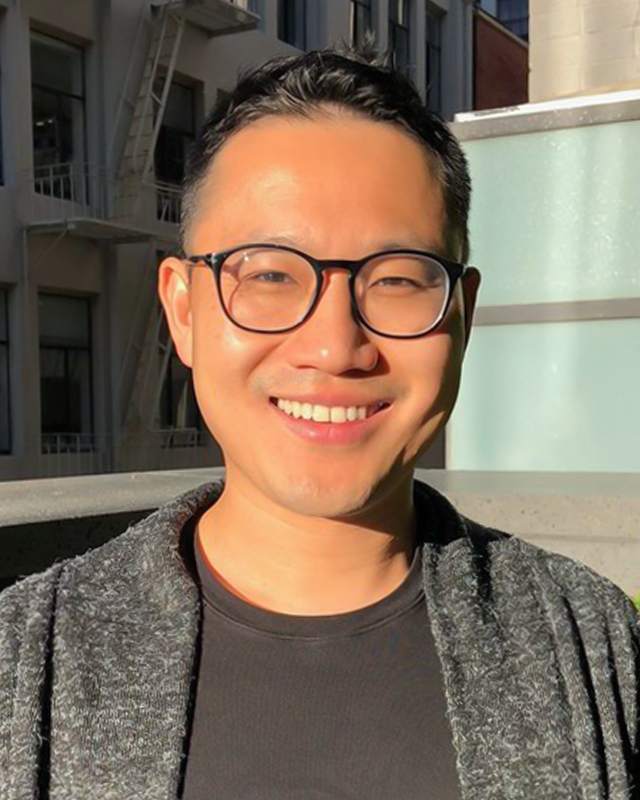
Jimmie Ye, PhD
Associate Professor, UC San Francisco
Affiliate Investigator, Gladstone Institutes
Jimmie Ye received his BS in bioengineering, electrical engineering, and computer science at UC Berkeley, and his PhD in bioinformatics and system biology at UC San Diego. He completed his postdoctoral training in Aviv Regev’s lab and the Broad Institute Cell Circuits Program. At UCSF, he is an associate professor in the division of rheumatology in the department of medicine. He is also a member of the Institute for Human Genetics, the Genomic Immunology Institute, and the Bakar Computational Health Sciences Institute, an investigator of the Parker Institute for Cancer Immunotherapy and Chan Zuckerberg Biohub. His research group focuses on harnessing the power of single cell and computational biology to study and model how human immune cells sense and respond to their environment.
Details
Dates
November 3, 2021Time
9:00am-5:00pm PDTLocation
OnlineDiversity, Equity, and Inclusion
At Gladstone, we are committed to providing events and professional development activities that resonate with our community’s diverse members. Our goal is to develop creative programming that encompasses a wide variety of ideas and perspectives to inspire, educate, and engage with everyone within our walls.
We want to effect positive change through our events and activities by providing a platform for discussions on important topics related to increasing diversity and inclusiveness in the sciences.

